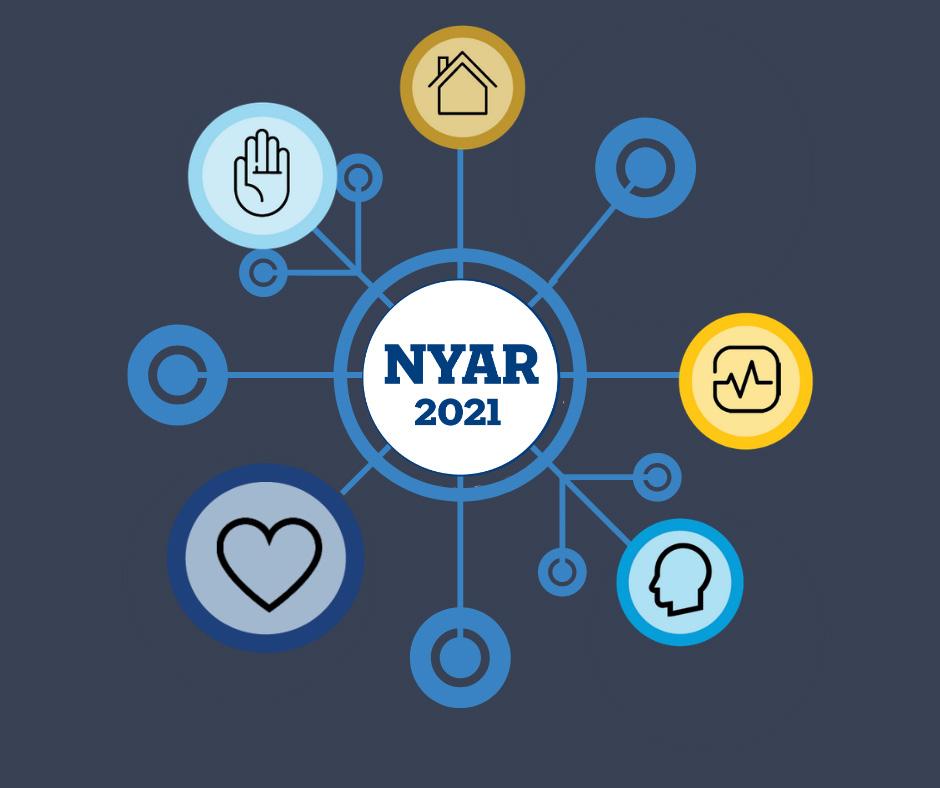
5 minute read
Session Seven
3:00 - 4:00 p.m. Session 7 Breakouts
Taking Time to B.R.E.A.T.H.E.: Strategies for Personal and Professional Resilience
Joelle Hood, EdD, Thriving YOUniversity, Murrieta, CA Janeen Antonelli, MEd, Thriving YOUniversity, Yorba Linda, CA Let’s face it. Life is full of change and uncertainty and is pretty stressful right now for most of us. When students and staff experience chronic stress, it can negatively impact their motivation, performance, and well-being, which can then affect the morale and climate of the home, the classroom, the staff room, the organization, and the community. There couldn’t be a more important time to focus on strengthening our well-being and resilience than right now. Participants in this engaging workshop will walk away with simple research-based practices from the fields of mindfulness, positive psychology, emotional intelligence, and social psychology, that they can utilize with themselves, their teams, and their students to reduce stress and anxiety, improve attention and performance, and strengthen overall physical and psychological well-being. This transformational learning session provides an easy framework to give staff the understanding, motivation, and practices needed to work on becoming better humans, better educators, better leaders and better organizations.
What Do You See When You Look at Me? A View Through Their Eyes
Bea Lewis, MS, BEAHIVE Education Consulting, Jacksonville, FL It is often said that “perception is reality”, but the deeper question is “whose” reality. Despite our best efforts, there still exist challenging gaps in showing respect and courtesy to everyone, regardless of the differences. How do we do that? The mindfulness about how we perceive and are perceived in this session will be steeped with culturally congruent pedagogical practices This engaging, fun and interactive, real, raw, and relevant session will challenge and show attendees how to examine those subtle struggles or obstacles that we all face when looking at our students, parents, colleagues and the hardest of all, at ourselves. They will reflect, reconsider and self-examine how their perceptions might influence their expectations for not only their students, but also their fellow teachers, parents, school & community and subsequently, the ways they teach. Participants will leave with individual and building-wide self-assessments and activities that can be used to create a positive climate and culture of intentionally promoting inclusivity and positive relationships.
Aware, Accepting and Able: A Mindfulness-Based Approach Supporting P-12 Students through COVID-19
Richard Cleveland, PhD, LPC, NCC, ACS, Georgia Southern University, Statesboro, GA Jennifer Perry, PhD, NCC, Georgia Southern University, Statesboro, GA In addition to the potential physical effects of COVID-19, students in P-12 may experience significant emotional and mental health effects. As p-12 systems continue to revise and alter COVID-19 responses, educators (teachers, school counselors, paraeducators, school psychologists, administrators) are looking for tools and resources to support students’ social and emotional well-being. This session presents a mindfulness-based approach for supporting students. The session will provide a summary of students’ responses to COVID-19, various P-12 responses, an introduction to mindfulness, and the Aware, Accepting, & Able framework. The presentation will incorporate dialogue between presenters and participants to provide a more rich learning environment.
Room 2 Breathe: A Mindfulness Space for Self-Regulation to Help Improve Students’ Outcomes in Schools
Chatelah Brown, LMSW, Atlanta Public Schools, Atlanta, GA Jacquelyn Anthony, EdD, Atlanta Public Schools, Atlanta, GA The presenters will share how developing a mindfulness/system sensory room in a non-traditional high school setting as an extension of student support can be associated with increased attendance in school, greater academic success, self-regulation, advocacy and improved classroom performance and behavior for all students. This presentation will share specific concrete approaches and interventions that have been implemented with proven results in a non-traditional public high school. These interventions address the social/emotional needs of youth at risk of dropping out; consequently, keeping students on track to academic success and supporting students in understanding choices and consequences in their post-secondary life.
More than a Trash Bag: The Journey of Life Before, During and After Foster Care and the Path to Resilience
Sara Wood, EdD, Bibb County School System, Macon, GA As practitioners, we are often in search of successful programs, anecdotes, cures, and solutions for everyday problems and challenges. This presentation will begin in the form of a story—a story of a real, in the human flesh person who came into the foster care system as a victim of abuse and neglect and left as a college graduate and continued her success as a social worker, child advocate, Statewide Youth Advisory Board Coordinator, and educator. Sara will share her strategies with supporting research for her personal success and resilience and how she models this success to young people.
Can You Dig It? Excavating SEL Through the Arts
Gina Moore, LMSW, Crosswalk Ministries USA, Inc., McDonough, GA This session is directed toward practitioners with experience and/or interest in using creative exploration to uncover the power of the arts as tools for tweens and teens to excavate their social-emotional skills. This highly interactive workshop will offer practical strategies for building authentic relationships that foster a sense of community and an atmosphere of trust within the group using art and other creative activities. Participants will leave with their own unique artwork and written instructions to facilitate all the activities in their own programs.
Suicidality Among Our Youth
Kendra Phoumivong, LCSW, Hillside, Inc., Savannah, GA This presentation will identify the need for all professionals to increase their knowledge and awareness of suicide rates among youth and assist with taking steps to clearly identify warning signs and how to respond if a suicidal event occurs.
Integrating Volunteer Risk Management into All Aspects of Youth-Serving Organizations
Al Parker, PhD, University of Georgia, Athens, GA Keri Hobbs, MPA, University of Georgia, Athens, GA With the prevalence of child abuse stories in media, coming from youth-serving organizations, we must work to keep our children safe while in the custody of youth-building programs. This workshop will describe the importance of youth-serving volunteers and explain the need for risk management policies and procedures for adults. Volunteer recruitment, utilization, and retention, as well as screening, training, and disciplinary processes will be discussed.




